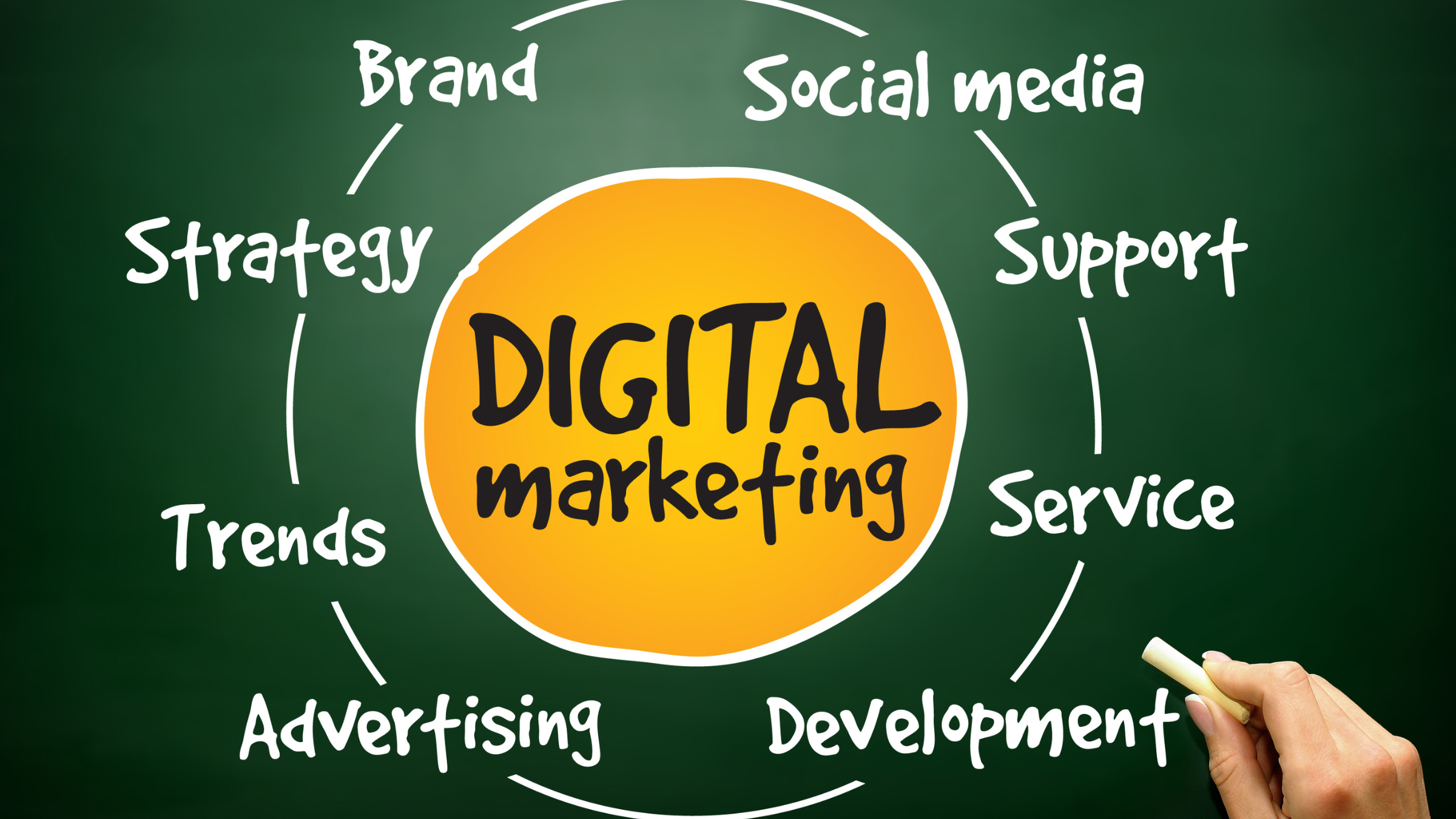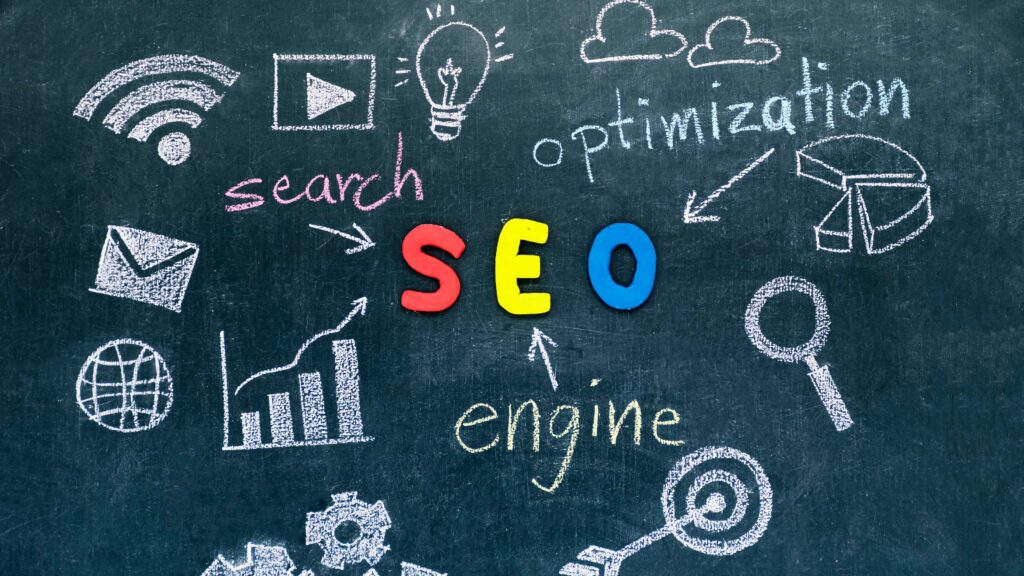
Digital Marketing for the Manufacturing Industry: Driving Success in a Competitive Landscape
The manufacturing industry is constantly evolving, and so is how manufacturers market their products and services. In today’s digital world, it’s more important than ever for manufacturers to have a solid online presence and execute effective digital marketing strategies to reach potential customers.
Digital marketing can help manufacturers achieve several goals, including:
- Generating leads and sales
- Building brand awareness
- Improving customer engagement
- Driving website traffic
- Providing customer service
Understanding the Manufacturing Industry’s Unique Challenges
The manufacturing industry faces several unique challenges in the digital marketing landscape. These include:
- A complex and fragmented market: The manufacturing industry comprises a diverse group of companies, ranging from small to large enterprises. This can make reaching the right audience with the right message difficult.
- A focus on technical expertise: Manufacturers often focus on technical expertise and product quality and may have a different marketing experience than other industries.
- A need for understanding digital marketing: Many manufacturers must become more familiar with digital marketing concepts and strategies.
5 Key Digital Marketing Strategies for Manufacturers
Despite these challenges, manufacturers can use several digital marketing strategies to drive success. Here are five key strategies to consider:
- Content marketing: Content marketing is a powerful way for manufacturers to attract and engage potential customers. Manufacturers can establish themselves as thought leaders in their industry by creating and sharing valuable content, such as blog posts, whitepapers, and case studies. These are content that may be considered:
- Showcase the company’s expertise in manufacturing processes, product development, and industry trends.
- Highlight customer success stories and testimonials to demonstrate the value of their products or services.
- Provide in-depth technical information and resources to educate potential customers and build credibility.
- Search engine optimization (SEO) improves a website’s ranking in search engine results pages (SERPs). By optimizing their websites for relevant keywords, manufacturers can attract more organic traffic from potential customers. Adequate keywords should be used throughout the website’s content, including product pages, blog posts, and landing pages.
- Social media marketing: Social media platforms can be an excellent way for manufacturers to connect with potential customers, build relationships, and generate leads. For a successful social media presence:
- Determine which social media platforms are most relevant to the target audience.
- Create engaging content that resonates with the audience and aligns with the company’s brand.
- Run targeted social media ads to reach specific demographics and interests.
- Email marketing: Email marketing is still a powerful way to reach potential customers and nurture leads. Manufacturers can use email marketing to send newsletters, product updates, and special offers. To enhance email campaigns:
- Build an email list by capturing leads from the website, social media, and other channels.
- Segment the email list based on demographics, interests, and behaviours to personalize the content.
- Track email campaign performance to measure open rates, click-through rates, and conversions.
- Paid advertising: Paid advertising can be a great way to reach a larger audience and achieve specific marketing goals. Manufacturers can use paid advertising to target potential customers with particular demographics, interests, and behaviours. Paid ads can be effective for:
- Promote specific products or services.
- Drive traffic to the website or landing pages.
- Generate leads and conversions.
Conclusion
Digital marketing is essential for manufacturers who want to succeed in today’s competitive landscape. Manufacturers can use several digital marketing strategies to achieve their goals. These strategies can help manufacturers attract customers, build stronger relationships, and drive more sales.
Digital Marketing for the Manufacturing Industry: An Essential Guide
The manufacturing industry is undergoing a digital transformation, and businesses that embrace this change will be well-positioned to succeed. Digital marketing is a critical component of this transformation, and it can help manufacturers reach new customers, grow their businesses, and improve their bottom line.
Content Marketing
Content marketing is a long-term strategy that involves creating and distributing valuable, relevant, and consistent content to attract and retain a clearly defined audience. You can build trust and establish yourself as an industry expert by providing your target audience with valuable, free information. Here are a few benefits of content marketing for manufacturers:
- Increases website traffic
- Generates leads
- Improves brand awareness
- Establishes your company as a thought leader
- Drives sales
Some of the most effective types of content marketing for manufacturers include:
- Blog posts
- Whitepapers
- Case studies
- Infographics
- Videos
To create compelling content, it is essential to understand your target audience’s needs and interests. What kind of information are they looking for? What are their pain points? Once you know your audience, you can tailor your content to their needs.
For example, if you are targeting engineers, write a blog post about the latest trends in manufacturing technology. If you target plant managers, write a whitepaper about improving operational efficiency.
Content marketing is a powerful tool to help manufacturers reach their target audience, build trust, and drive sales. By providing your audience with valuable information, take advantage of the opportunity to use content marketing to grow your business.
Digital Marketing for the Manufacturing Industry: A Guide to Success
The manufacturing industry is undergoing a digital transformation, and businesses that embrace digital marketing are reaping the rewards. Digital marketing can help manufacturers reach new customers, increase brand awareness, and generate leads. This article will explore the various digital marketing strategies essential for success in the manufacturing industry.
Content Marketing
Content marketing creates and shares valuable, relevant, consistent content to attract and retain a clearly defined audience. For manufacturers, this could involve creating blog posts, white papers, infographics, and videos that provide insights into the industry, showcase your expertise, and demonstrate how your products or services can solve customer problems. By providing valuable content, you can establish yourself as a thought leader and build trust with potential customers.
Search Engine Optimization (SEO)
Search engine optimization (SEO) is optimizing your website and content to improve its ranking in search engine results pages (SERPs). When potential customers search for products or services related to your business, you want your website to appear as high in the results as possible. SEO involves optimizing your website’s content, structure, and backlinks to make it more relevant and authoritative to search engines. By implementing effective SEO strategies, you can increase organic traffic to your website and attract more qualified leads.
Social Media Marketing
Social media platforms like LinkedIn, Twitter, and Instagram are powerful tools for engaging with potential customers, expanding your reach, and showcasing your expertise. By sharing relevant content, participating in industry discussions, and running targeted social media campaigns, you can build relationships with potential customers, generate leads, and drive traffic to your website.
Email Marketing
Email marketing remains a highly effective way to reach potential customers and nurture relationships. You can keep your business top-of-mind and drive conversions by building an email list and sending out regular newsletters, promotional offers, and educational content. Use email marketing to nurture leads, promote new products or services, and provide valuable information to your subscribers.
Pay-Per-Click (PPC) Advertising
PPC advertising allows you to place ads on search engine results pages (SERPs) and social media platforms. When someone clicks on your ad, you pay a small fee. PPC advertising can be a quick and efficient way to reach your target audience and generate leads. However, it’s essential to carefully manage your PPC campaigns to ensure that you’re getting a good return on investment (ROI).
By implementing these digital marketing strategies, manufacturers can reach new customers, increase brand awareness, and generate leads. However, it’s important to remember that digital marketing is ongoing. You need to continuously monitor your results, make adjustments, and stay up-to-date on the latest trends to ensure that your marketing efforts are practical.
The Ultimate Guide to Digital Marketing for the Manufacturing Industry
In today’s digital age, the manufacturing industry can no longer afford to ignore the power of digital marketing. With more and more buyers turning to the internet to research products and services, manufacturers need a solid online presence.
Digital marketing can help manufacturers reach a wider audience, generate leads, and increase sales. By implementing a comprehensive digital marketing strategy, manufacturers can position themselves as thought leaders in their industry and attract more qualified leads.
Search Engine Optimization (SEO)
Search engine optimization (SEO) is critical to any digital marketing strategy. By optimizing your website and online content for search engines, you can increase your visibility in search results and attract more qualified leads from organic traffic.
- Keyword Research: Identify the keywords your target audience is searching for and incorporate them into your website content and metadata. Use tools like Google Keyword Planner to find relevant keywords and phrases.
- On-Page Optimization: Optimize your website for specific keywords by including them in your page titles, headings, and content. Use keyword-rich anchor text for internal and external links.
- Content Marketing: Create high-quality content relevant to your target audience and providing value. Use blog posts, articles, infographics, and videos to establish your brand as a thought leader in the industry.
- Website Design: Design your website with SEO in mind. Use a responsive design that is easy to navigate and mobile-friendly.
- Technical SEO: Ensure your website is technically sound by optimizing page load speed, using proper URL structures, and creating an XML sitemap.
Content Marketing
Content marketing is an effective way to attract and engage potential customers. Creating high-quality content relevant to their needs can build trust and establish your brand as a thought leader.
- Blog Posting: Start a blog and publish regular posts that provide valuable information to your target audience. Use keywords in your blog posts and optimize them for search engines.
- Article Writing: Write articles for industry publications and guest posts on other blogs in your niche. This will help you reach a wider audience and build backlinks to your website.
- Infographics: Create infographics that visually represent complex data or information. Infographics are highly shareable on social media and can help you attract more website traffic.
- Videos: Produce videos demonstrating your products or services and providing valuable information to your audience. Host videos on YouTube and embed them on your website and social media channels.
Social Media Marketing
Social media is a powerful tool for manufacturers to connect with potential customers, build relationships, and promote their products or services.
- Establish a Social Media Presence: Create profiles on all the major social media platforms where your target audience is active.
- Share Valuable Content: Share content relevant to your audience and providing value. Use a mix of blog posts, articles, videos, and infographics.
- Engage with Your Audience: Respond to comments and questions on your social media posts. Run contests and giveaways to engage your audience and build excitement around your brand.
- Use Social Media Advertising: Use social media advertising to reach a wider audience and target specific demographics. It can be a cost-effective way to generate leads and drive traffic to your website.
Email Marketing
Email marketing is a highly effective way to nurture leads and drive sales. By segmenting your email list and sending targeted emails, you can increase open rates, click-through rates, and conversions.
- Build an Email List: Collect email addresses from website visitors, social media followers, and other sources. Use lead magnets like free ebooks or whitepapers to entice people to sign up for your email list.
- Segment Your Email List: Divide your email list into segments based on demographics, interests, or behaviour. This will allow you to send targeted emails relevant to each segment.
- Create High-Quality Email Content: Write engaging, informative, and persuasive email content. Use strong subject lines, compelling body copy, and a clear call to action.
- Automate Your Email Marketing: Use email marketing automation to send automated emails based on specific triggers, such as when someone signs up for your email list or downloads a piece of content.
Paid Advertising
Paid advertising can be a quick and effective way to reach a wider audience and generate leads. Search engine ads, social media ads, and display ads can target specific demographics and interests.
- Search Engine Ads: Run pay-per-click (PPC) ads on search engines like Google and Bing. Use keywords your target audience is searching for and create compelling ad copy.
- Social Media Ads: Run ads on social media platforms like Facebook, Instagram, and LinkedIn. Use social media ads to target specific demographics, interests, and behaviours.
- Display Ads: Use ads to reach people browsing websites and reading articles. Display ads are a great way to build brand awareness and drive traffic to your website.
Conclusion
Digital marketing is essential for manufacturers who want to reach a wider audience, generate leads, and increase sales. By implementing a comprehensive digital marketing strategy that includes SEO, content marketing, social media marketing, email marketing, and paid advertising, manufacturers can position themselves as thought leaders in their industry and attract more qualified leads.

Digital Marketing for the Manufacturing Industry
The manufacturing industry is undergoing a digital transformation. As customers increasingly turn to the internet to research and purchase products, businesses in this sector must adapt their marketing strategies to reach and engage with their target audience online.
Content Marketing
Content marketing is an essential digital marketing strategy for manufacturers. By creating and distributing valuable, relevant, and consistent content, manufacturers can attract and retain a clearly defined audience, ultimately driving profitable customer action.
Search Engine Optimization (SEO)
SEO is the practice of optimizing a website so that it ranks higher in search engine results pages (SERPs). By optimizing their website for relevant keywords, manufacturers can increase their online visibility and drive more traffic.
Social Media Marketing
Social media marketing allows manufacturers to connect with potential customers, build relationships, and promote their products and services. By creating a solid social media presence, manufacturers can increase brand awareness and generate leads.
Paid Advertising
Paid advertising can be an effective way for manufacturers to reach a wider audience quickly. By using platforms such as Google AdWords and Facebook Ads, manufacturers can target their ads to specific demographics and interests.
Email Marketing
Email marketing is a powerful tool for manufacturers to build relationships with prospects and customers. Manufacturers can deliver personalized messages and share industry updates by sending targeted email campaigns. Email marketing can also be used to nurture leads and drive sales.
This briefly overviews some of the manufacturing industry’s most effective digital marketing strategies. By implementing these strategies, manufacturers can reach a wider audience online, grow their business, and gain a competitive advantage in the digital age.
Digital Marketing Strategies for the Manufacturing Industry: A Comprehensive Guide
In today’s hyper-competitive market, manufacturers are recognizing the crucial role of digital marketing in driving growth and staying ahead of the curve. Manufacturers can target potential customers by leveraging data-driven strategies and innovative tactics, generating leads, and boosting conversions.
Paid Advertising
Harness the power of paid advertising platforms like Google AdWords and LinkedIn Ads to reach particular audiences with tailored ad campaigns. These platforms allow manufacturers to target potential customers based on demographics, industry, and specific search terms. Manufacturers can generate high-quality leads that drive conversions and contribute to revenue growth by crafting compelling ad copy that speaks directly to their needs.
Content Marketing
Create valuable and informative content that educates and engages potential customers. Blog posts, white papers, infographics, and case studies allow manufacturers to showcase their expertise, build trust with buyers, and establish themselves as industry thought leaders. By delivering high-quality content that addresses common challenges and pain points within the manufacturing sector, manufacturers can position themselves as trusted advisors and drive leads that are ready to engage.
Social Media Marketing
Leverage social media platforms like LinkedIn, Twitter, and YouTube to connect with potential customers, build brand awareness, and promote products and services. Manufacturers can create a loyal following that becomes a valuable source of qualified leads and referrals by actively engaging with followers, sharing industry insights, and fostering a sense of community.
Search Engine Optimization (SEO)
Optimize websites and online content for relevant keywords and search queries to improve visibility in search engine results pages (SERPs). By implementing SEO best practices such as keyword research, content optimization, and backlink building, manufacturers can increase the chances of their websites appearing at the top of search results, thus driving organic traffic and generating more leads.
Influencer Marketing
Partner with industry experts, bloggers, and social media influencers who have established followings within the manufacturing sector. By collaborating with these thought leaders, manufacturers can leverage their credibility and reach to promote their products and services to a broader audience. Influencer marketing can help manufacturers build trust, generate buzz, and drive qualified leads.
Email Marketing
Email marketing remains a powerful channel for nurturing leads and building relationships with potential customers. Manufacturers can send targeted campaigns that deliver personalized content and drive conversions by segmenting email lists based on demographics, industry, and interests. Automated email sequences can nurture leads over time, providing valuable insights and building trust, ultimately leading to sales.
Analytics and Measurement
Monitoring the performance of digital marketing campaigns is essential for optimizing results and maximizing return on investment (ROI). Manufacturers can track key metrics such as website traffic, lead generation, and conversion rates by implementing analytics tools such as Google Analytics. These insights allow manufacturers to identify areas for improvement, fine-tune their campaigns, and allocate resources more effectively to achieve their marketing goals.
Digital Marketing for the Manufacturing Industry
Manufacturing companies must embrace digital marketing to remain competitive in today’s digital landscape. It’s like navigating a bustling city: it pays to know the shortcuts to reach your destination. Digital marketing empowers manufacturers to connect with customers, build brand awareness, and drive growth—and we’ll guide you through the maze of strategies.
Content Marketing
Showcase your expertise by creating valuable content that educates and engages your audience. Consider it bait for your target audience: provide insightful articles, videos, and case studies that resonate with their pain points and industry challenges.
Search Engine Optimization (SEO)
Optimize your website and content for relevant keywords to boost your visibility in search engine results. It’s like placing a signpost at every turn, pointing potential customers to your digital doorstep. By researching industry-related keywords, you can make your website a magnet for those seeking your products or services.
Pay-Per-Click (PPC) Advertising
Gain instant visibility with PPC campaigns. These targeted ads appear in search results or relevant websites, allowing you to reach potential customers based on specific demographics, interests, or keywords. Think of it as a shortcut to reaching your target audience—but remember to set a budget!
Social Media Marketing
Engage with your audience on platforms like LinkedIn, Twitter, and Instagram. Showcase your products, share industry updates, and foster relationships with potential customers. It’s like hosting a virtual cocktail party where you can connect with industry professionals and nurture leads.
Email Marketing
Nurture your leads and build lasting relationships through email marketing. Craft personalized messages that provide valuable content, offer exclusive promotions, and guide prospects through the sales funnel. It’s like sending out a warm invitation to your most loyal fans, keeping them informed and engaged.
Video Marketing
Harness the power of video to connect with your audience emotionally. Create engaging videos that showcase your products in action, demonstrate industry best practices, or offer thought-provoking insights. Think of it as a visual storytelling medium that captivates your audience and leaves a lasting impression.
Customer Relationship Management (CRM)
Integrate a CRM system to manage customer interactions, track sales pipelines, and provide exceptional customer service. It’s like having a digital hub where you can centralize all customer data, streamline communication, and foster stronger relationships with your customers.
Artificial Intelligence (AI)
Harness the power of AI to automate tasks, analyze customer data, and personalize your marketing campaigns. It’s like having a digital sidekick that can handle the heavy lifting, freeing you up to focus on the big picture. By leveraging AI, you can gain insights into customer behaviour, optimize your campaigns, and drive more efficient results.
Conclusion
Digital marketing is the driving force behind growth in the manufacturing industry. By embracing these strategies, you can unlock new markets, engage with customers, build brand loyalty, and fuel your bottom line. It’s not just about following trends but about adapting to the digital age and using technology to your advantage. So, buckle up and let’s navigate this digital landscape together!
Digital Marketing for the Manufacturing Industry: A Winning Strategy
In today’s digital age, the manufacturing industry, like a well-oiled machine, requires a robust online presence to thrive. Digital marketing has emerged as the linchpin for manufacturers seeking to reach their target audience, generate leads, and drive sales in the ever-evolving global marketplace.
Content Marketing: The Power of Storytelling
Content marketing is akin to crafting a captivating narrative that resonates with your audience. By creating valuable, informative content tailored to the specific needs of the manufacturing sector, businesses can establish themselves as thought leaders and build trust with potential customers. Blog posts, white papers, and case studies are invaluable tools for educating prospects and positioning your brand as an industry expert.
Search Engine Optimization (SEO): Unlocking Visibility
SEO is the key to unlocking the full potential of your website’s organic visibility in search engine results pages (SERPs). By optimizing your website’s content, structure, and technical elements, you can ensure that your business appears at the forefront of searches related to your products or services. Keywords, meta descriptions, and backlinks are pivotal in enhancing your website’s ranking and attracting qualified traffic.
Social Media Marketing: Connecting with Customers
Social media platforms have become indispensable channels for fostering relationships with customers. By establishing a solid social media presence, manufacturers can engage with their target audience, build brand loyalty, and generate leads. Sharing industry-specific updates, showcasing products, and offering customer support through social media can significantly expand your reach and drive conversions.
Email Marketing: Nurturing Relationships
Email marketing remains a powerful tool for nurturing relationships with potential customers. By crafting targeted email campaigns that provide valuable content and exclusive offers, manufacturers can stay top-of-mind with their audience and encourage repeat business. Segmentation and personalization are vital to ensuring that your email campaigns deliver the right message to the right people at the right time.
Paid Advertising: Accelerating Growth
Paid advertising platforms, such as Google AdWords and LinkedIn Ads, offer a targeted and cost-effective way to reach your desired audience. By leveraging paid campaigns, manufacturers can display their ads to specific demographics, interests, and keywords, driving website traffic and generating leads.
Video Marketing: Visual Storytelling
In an increasingly visual world, video marketing has become a compelling medium for manufacturers to showcase their products, processes, and expertise. Product demos, customer testimonials, and behind-the-scenes videos can capture attention, engage viewers, and build trust.
Influencer Marketing: Harnessing Credibility
Partnering with industry influencers can significantly boost your brand’s credibility and reach. By collaborating with experts and thought leaders in the manufacturing space, you can tap into their existing audience and leverage their endorsement to promote your products or services.
Data Analytics: Measuring Success
Data analytics is the compass that guides your digital marketing strategy by tracking key metrics, such as website traffic, lead generation, and conversion rates. Data-driven decisions ensure that your marketing efforts are constantly optimized for maximum impact.
Conclusion
By embracing a comprehensive digital marketing strategy, manufacturing businesses can enhance their online presence, generate leads, and drive growth in the competitive global market. It’s time to shift your manufacturing business into high gear and leverage the power of digital marketing to forge a path to success in the 21st century.
Read also: A Beginner’s Guide to Digital Marketing




